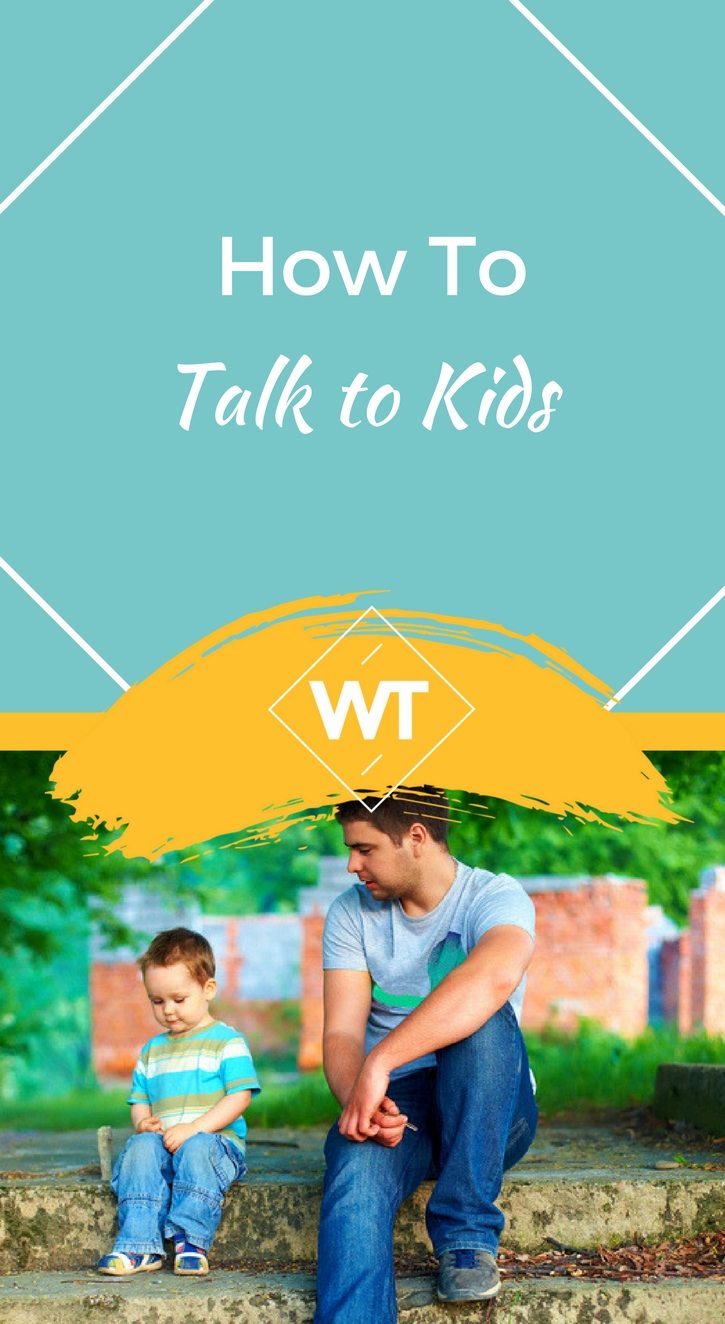How to Talk to Kids

Communication is said to be the key to bringing up kids. Many of us tend to treat kids like adults. What we need to do is understand what a child can comprehend according to their age. As parents or caregivers we need to keep the channels of communication open and establish early who “leads the pack.”
Most kids try to dominate by throwing tantrums or by winding a parent around their little finger.
My little girl was adept at spinning her magic around her father—my husband just could not say “No” to his daughter. By just smiling at him she could conquer him and get her way. He was putty in her hands.
Learning how to talk to kids is an art. Disciplining a child requires patience, love, insights into a child’s nature, and precise timing.
Learn the trick to talk to kids
It’s easy if you know how—always look into your child’s eyes and speak. Teach the child to look up at you and focus. Try and avoid loud and harsh angry tones and aggressive body language. Remember the child looks up to you for comfort, love, and protection.
Take a deep breath, calm down, and then speak to the child in soft yet firm tones. Keep your message simple so that the child understands you clearly. If the child is weeping copiously or throwing a tantrum wait until the child calms down before you convey your displeasure and opinion.
Read about child development and understand the psychology of the child and their level of understanding.
Wait your Turn
Expert’s advise that one should never talk to a kid when they are hurt, upset, or throwing a tantrum. The first thing is to calm the child down and find out what upset the child. Many parents out of sheer fright start shouting at the child or get agitated when the child is hurt or has got into a fight.
A child is young and cannot hear or comprehend through their tears or pain. Always hold the child and calm the child down. Convey that you love the child and will always be there to help him/her. When my son was young he would do many things to get me to leave work and return home. He has locked his grandmother and sister in a room, flooded the whole house with soap and water and more. He was not doing these things out of meanness.
He was trying to find ways to ensure his mother would come home and be with him. At five years of age he could not understand why Mom went to work. It took huge effort on my part not to rave and rant and understand that he was just a baby.
I used to return home, hold him and say “ I do love you” and later try and explain that what he was doing was “bad.” Punishing him with time-out or any other method was not an option in his case. He was hurting and needed his mom. Patient explaining over many days turned things around gradually.
Be firm when you talk to a kid and speak in simple sentences so that a child understands what you are saying. Do not Spank a child. Use gentle tones and polite language. Kids are clever and can quickly pick up what you are trying to convey.
Never talk a kid down – befriend them
Kids are clever so try not to always talk down to a child. Tune in to the child and understand him/her thoroughly. Be kind and make the child comfortable talking to you. A child should be able to speak freely to you and know that you will listen.
Build confidence in the kid—let the child decide what to do and how to deal with a situation. Avoid a power struggle by being a friend who is maintaining his/her position as parent. Be clued to your child’s emotions and understand his/her body language.
Non-verbal communication is important where children are concerned. Learning how to talk to kids is tricky. Just be someone your child loves and trusts and is not afraid of.









Leave a Reply